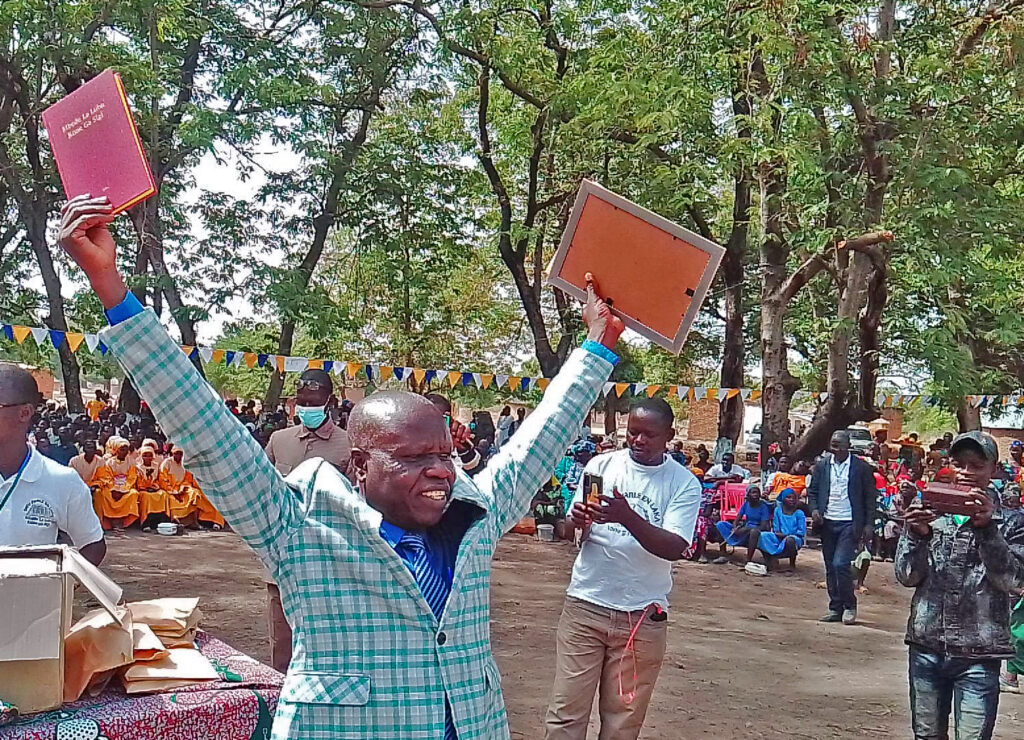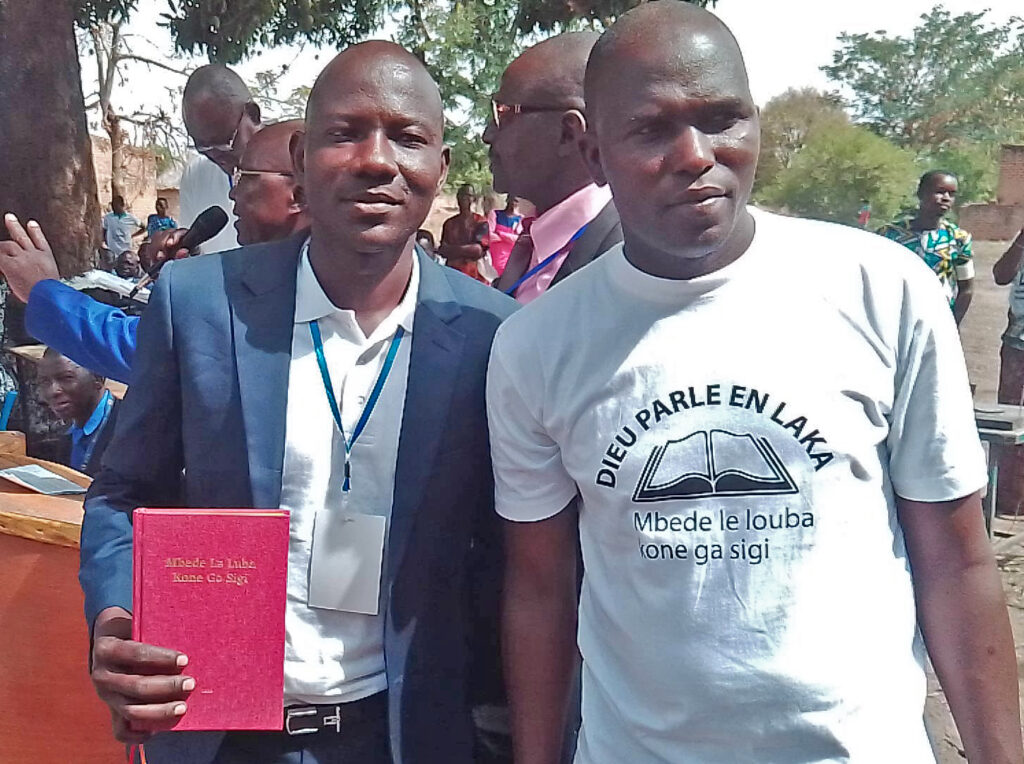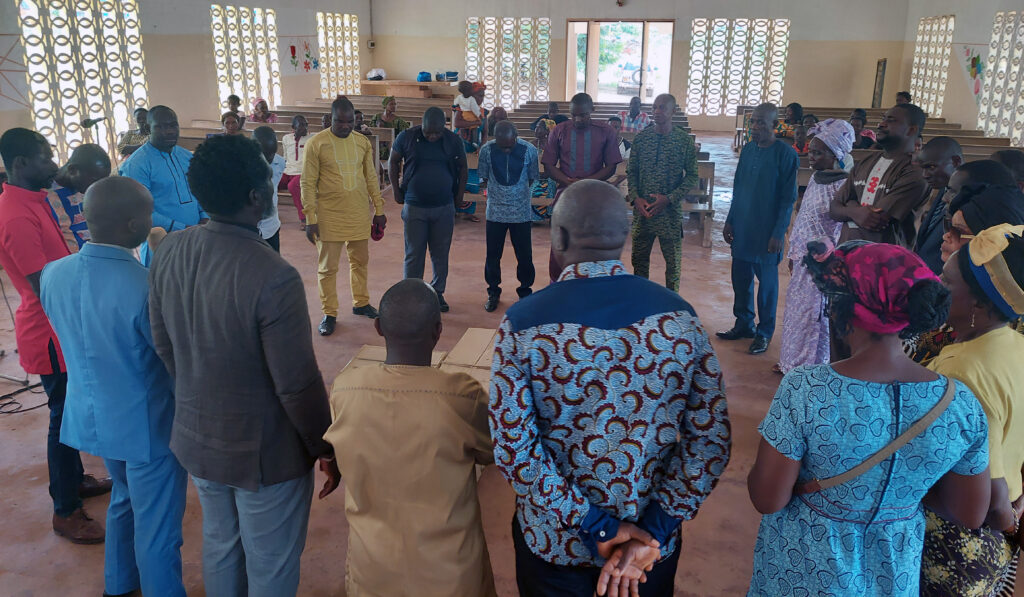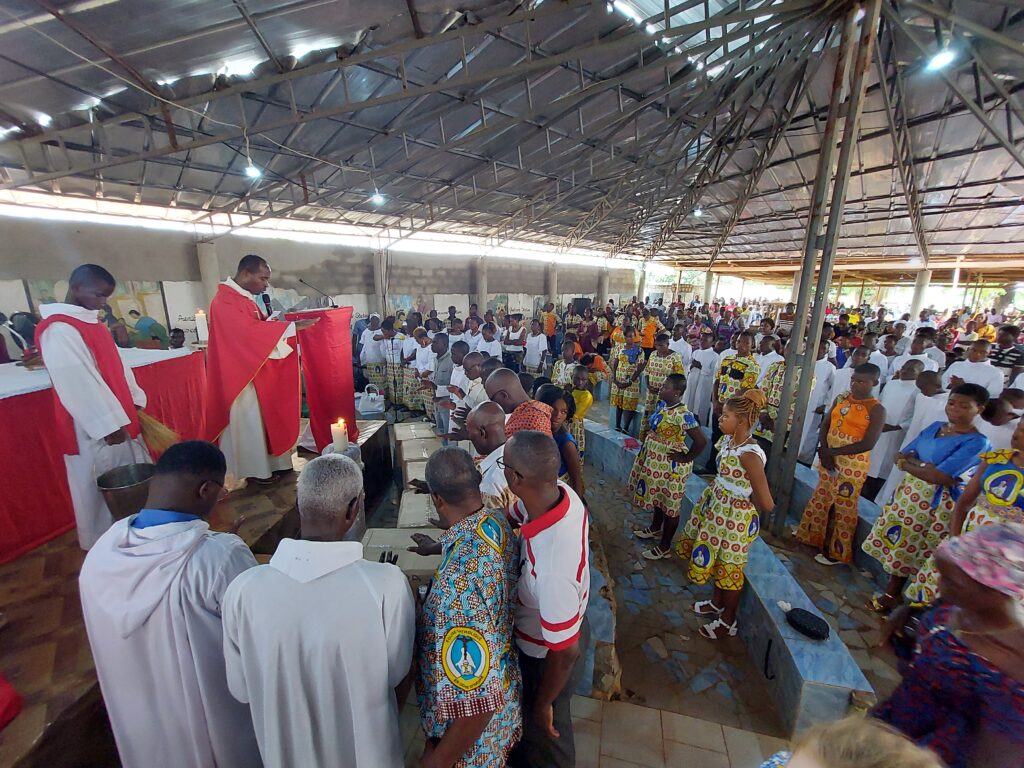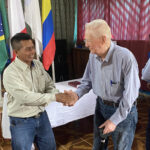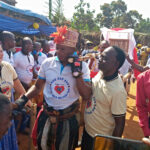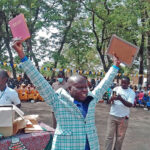Shoeboxes and Bridges
Before computers, there were shoeboxes. Early Bible translators and other Scripture workers, when learning a language, would write the new words on index cards, collecting them in a shoebox. Eventually these word collections became dictionaries in the local languages.
One woman participated in this type of work in Peru. “I helped with the early work, trying to get the dictionary compiled from these boxes. I had shoeboxes of cards. They were worm-eaten, and sometimes [the worms] ate through a vowel, so you didn’t know what the vowel was.”
Computers, when they entered the picture, alleviated this painstaking process. However, much work and many hands are still needed to complete the task.
That’s why a host of volunteers amassed at JAARS to help check the proofs of a Narak-English and English-Narak dictionary for a language group in Papua New Guinea. Volunteers spent hours scouring the dictionary proofs for punctuation, footer and header, page number, and other mistakes, making sure it was ready to be printed. “It’s very significant to the local people to have a dictionary,” a volunteer at the proofing party explained. “It proves that their language is important.”
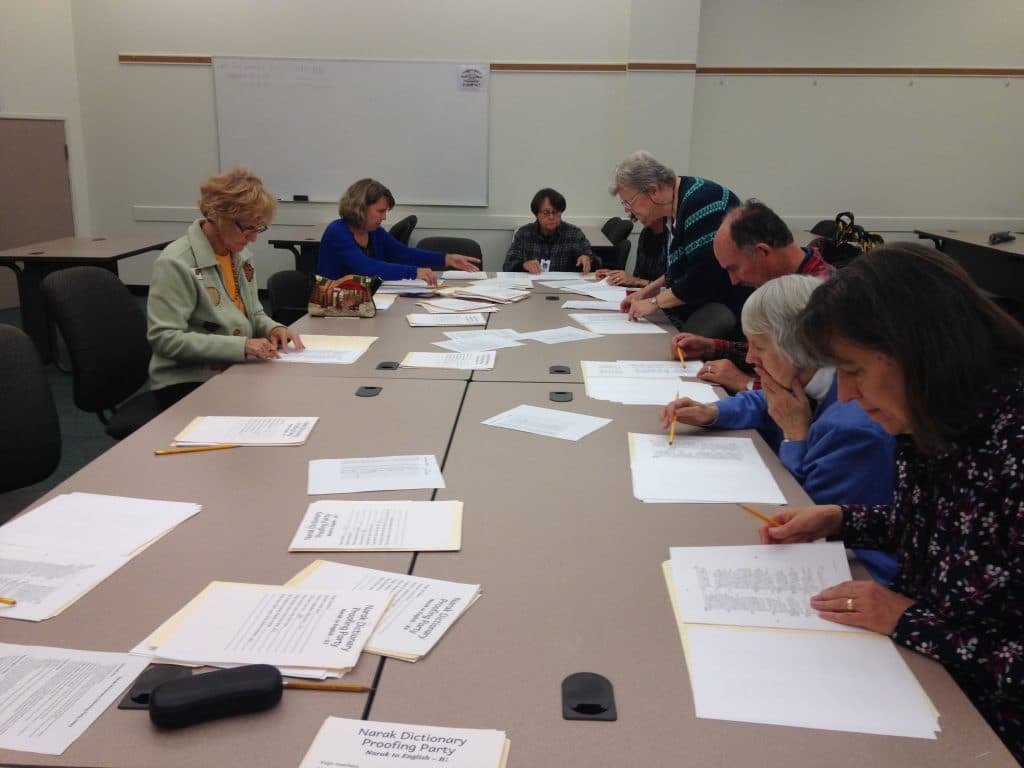
The Narak dictionary owes its beginning to two translators, Joan from Western Australia and Kay from Washington state, who traveled to Papua New Guinea and teamed up in 1962 to do Bible translation work.
While gazing at a map, they realized there was a whole section in the Western Highlands province where no one was doing translation work. When they asked about this, they were told the area was restricted because of tribal fighting. The two women prayed about the possibility of doing translation in this region.
A few months later, by God’s provision, the restrictions were lifted. Joan and Kay moved to a remote area of the Western Highlands where the Narak people lived and began learning their language. They were the first white women that most people there had ever seen.
As they began to learn the language, they wrote down words and their meanings for a future dictionary.
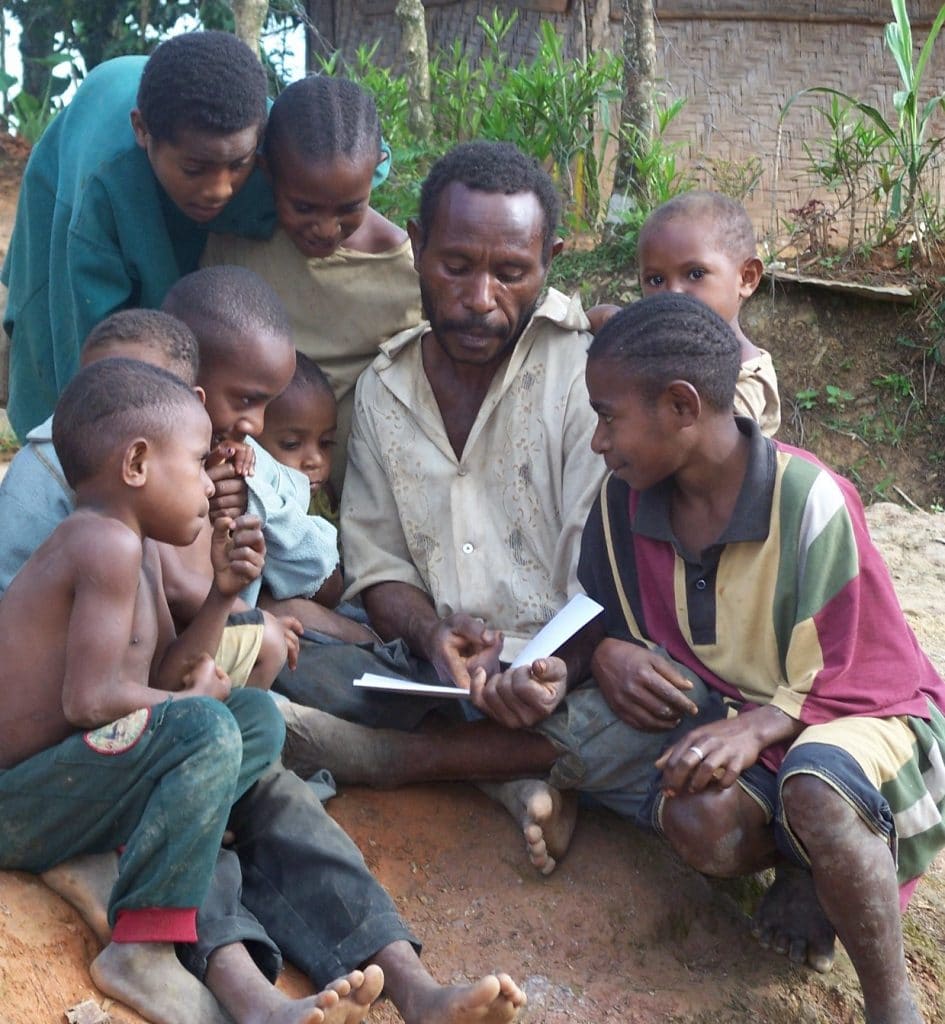
Joan and Kay provided the people with an alphabet, taught them to read, printed a number of smaller books in their language, and finished translating the New Testament into Narak 19 years later, in 1981. Kay returned home that year with health issues which prevented her from returning to PNG.
When Pat entered the translation project in 1985, she learned that the most recent typed version of the dictionary was 20 years old. Both Joan and Kay had their own versions with additional entries penciled in. Pat started typing the entries into her then new-to-the-world computer, using a magnifying glass to read some of them.
Regularly on Saturdays when they were in the Narak language area, Pat would walk to a market four miles away. She spread her books out on a piece of plastic, exposing people week-after-week to them. Invariably, someone who knew how to read picked up a book and read aloud. Others would hear the story and want a copy. Gradually, “we saw an interest in books develop,” Pat remembers. “They are very proud to have a New Testament in their language, proud of the books they have, and they really want this dictionary.”
She and Joan have worked on this collection of words off and on since then, reading the dictionary, proofreading it, checking with the people, and tweaking the definitions. She and Joan left Papua New Guinea in 2009, and Pat came to JAARS, where she has continued polishing and developing the dictionary.
Now, a multitude of years later, the roughly 6,000 people in the Narak language group possess not only a portion of God’s Word—the most important possession—but will soon also have a dictionary to help them learn English. According to Pat, “English is actually the official language in PNG, even though over 800 languages are spoken there. [The people] hope this dictionary will help them bridge into English and aid them in understanding the differences between Narak and English.”
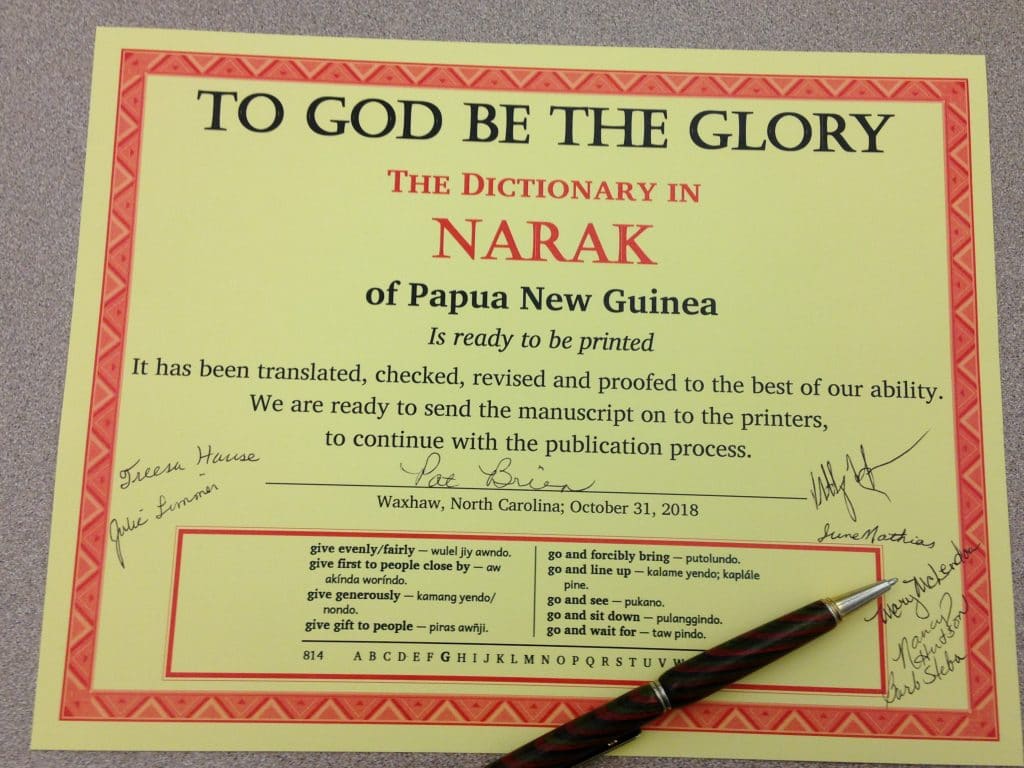
Join us in praying that God’s Word continues to be a bridge that carries the Narak people to Christ.



























































